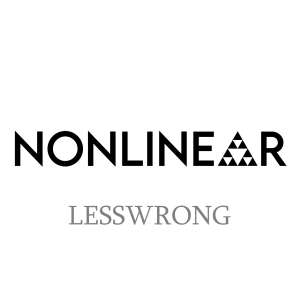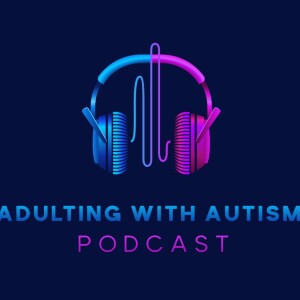

The Nonlinear Library: LessWrong
LW - Effectively Handling Disagreements - Introducing a New Workshop by Camille Berger
2024-04-17
Link to original articleWelcome to The Nonlinear Library, where we use Text-to-Speech software to convert the best writing from the Rationalist and EA communities into audio. This is: Effectively Handling Disagreements - Introducing a New Workshop, published by Camille Berger on April 17, 2024 on LessWrong.
On May 25th, 2023, someone posted a review of How Minds Change on LessWrong. It talked about Street Epistemology, Deep Canvassing, and Smart Politics, ways of handling disagreements that open the...
Link to original article
Welcome to The Nonlinear Library, where we use Text-to-Speech software to convert the best writing from the Rationalist and EA communities into audio. This is: Effectively Handling Disagreements - Introducing a New Workshop, published by Camille Berger on April 17, 2024 on LessWrong.
On May 25th, 2023, someone posted a review of How Minds Change on LessWrong. It talked about Street Epistemology, Deep Canvassing, and Smart Politics, ways of handling disagreements that open the possibility of rational belief progression through amicable discussions. Summarized quickly, they rely on active listening, sharing personal stories and socratic questioning.
You can now learn all of those three techniques online, for free, in 4 hours, and in a Deliberate Practice setting. If interested, you can also learn them in an in-person workshop spanning anytime between 2 hours and a full weekend -just shoot me an email with the object EHD (at the time of writing, I'm based in Paris, France).
You can enroll on the website (see bottom for subscribing to the mailing list), and join the discord server.
About the workshop:
What would you learn?
When you find yourself in disagreement with someone on a significant issue, and they might not share your perspectives or even show resistance towards them, it's natural to seek a productive dialogue. The goal is to have a conversation that brings both parties closer to understanding the truth. However, jumping directly into counter-arguments often proves counterproductive, leading to further resistance or increasingly complex counterpoints.
It's easy to label the other person as "irrational" in these moments.
To navigate these conversations more effectively, I'm offering a workshop that introduces a range of techniques based on evidence and mutual agreement. These methods are designed to facilitate discussions about deeply held beliefs in a friendly manner, keeping the focus on the pursuit of truth.
Techniques are the following:
4h version:
Deep Canvassing
Street Epistemology
Narrative Transportation
Cooling Conversations (Smart Politics)
12h version:
All the aforementioned plus Principled Negotiation and bits of Motivational Interviewing
Who is this for?
I'm mainly targeting people who are not used to such interactions, or feel frustrated by them -as such, you might not learn a lot if you are already used to managing high-stakes interactions.
In the specific case of Rationality/EA, this would allow you to :
Expand the community's awareness by easing exchanges with outsiders
e.g. if you are a professional researcher in AI Safety wanting to discuss with other researchers who are skeptical of your field.
Carefully spread awareness about Rat/EA-related ideas and cause areas
e.g. you are talking about EA and someone starts being confrontational.
Improve the accuracy of LW's / EA's / -themes public perception
e.g. if you meet someone in your local university or twitter thread who has beliefs about these themes you disagree with.
Help people inside and outside of the community to align their beliefs with truth
e.g. if you're leading a discussion about veganism during a fellowship.
Please note however that this is not exclusively thought for or dispensed to the aforementioned communities.
Why?
It's important, as individuals and as a community, that we're able to communicate effectively with people who disagree with us. I'd like to offer an opportunity for people to practice some skills together, such as managing an angry interlocutor, creating contact with someone who might identify us as opponents, and discussing both respectfully and rigorously with people whose beliefs seem very far from ours.
Why a workshop?
All techniques can be learned online. However, a workshop is often an important factor in kickstarting curiosity for them, as well as a good opportunity to practice in a secure environment. I also wanted to create a way to learn these effectively through deliberate practice, something I hadn't met so far, b...
View more
Welcome to The Nonlinear Library, where we use Text-to-Speech software to convert the best writing from the Rationalist and EA communities into audio. This is: Effectively Handling Disagreements - Introducing a New Workshop, published by Camille Berger on April 17, 2024 on LessWrong.
On May 25th, 2023, someone posted a review of How Minds Change on LessWrong. It talked about Street Epistemology, Deep Canvassing, and Smart Politics, ways of handling disagreements that open the possibility of rational belief progression through amicable discussions. Summarized quickly, they rely on active listening, sharing personal stories and socratic questioning.
You can now learn all of those three techniques online, for free, in 4 hours, and in a Deliberate Practice setting. If interested, you can also learn them in an in-person workshop spanning anytime between 2 hours and a full weekend -just shoot me an email with the object EHD (at the time of writing, I'm based in Paris, France).
You can enroll on the website (see bottom for subscribing to the mailing list), and join the discord server.
About the workshop:
What would you learn?
When you find yourself in disagreement with someone on a significant issue, and they might not share your perspectives or even show resistance towards them, it's natural to seek a productive dialogue. The goal is to have a conversation that brings both parties closer to understanding the truth. However, jumping directly into counter-arguments often proves counterproductive, leading to further resistance or increasingly complex counterpoints.
It's easy to label the other person as "irrational" in these moments.
To navigate these conversations more effectively, I'm offering a workshop that introduces a range of techniques based on evidence and mutual agreement. These methods are designed to facilitate discussions about deeply held beliefs in a friendly manner, keeping the focus on the pursuit of truth.
Techniques are the following:
4h version:
Deep Canvassing
Street Epistemology
Narrative Transportation
Cooling Conversations (Smart Politics)
12h version:
All the aforementioned plus Principled Negotiation and bits of Motivational Interviewing
Who is this for?
I'm mainly targeting people who are not used to such interactions, or feel frustrated by them -as such, you might not learn a lot if you are already used to managing high-stakes interactions.
In the specific case of Rationality/EA, this would allow you to :
Expand the community's awareness by easing exchanges with outsiders
e.g. if you are a professional researcher in AI Safety wanting to discuss with other researchers who are skeptical of your field.
Carefully spread awareness about Rat/EA-related ideas and cause areas
e.g. you are talking about EA and someone starts being confrontational.
Improve the accuracy of LW's / EA's / -themes public perception
e.g. if you meet someone in your local university or twitter thread who has beliefs about these themes you disagree with.
Help people inside and outside of the community to align their beliefs with truth
e.g. if you're leading a discussion about veganism during a fellowship.
Please note however that this is not exclusively thought for or dispensed to the aforementioned communities.
Why?
It's important, as individuals and as a community, that we're able to communicate effectively with people who disagree with us. I'd like to offer an opportunity for people to practice some skills together, such as managing an angry interlocutor, creating contact with someone who might identify us as opponents, and discussing both respectfully and rigorously with people whose beliefs seem very far from ours.
Why a workshop?
All techniques can be learned online. However, a workshop is often an important factor in kickstarting curiosity for them, as well as a good opportunity to practice in a secure environment. I also wanted to create a way to learn these effectively through deliberate practice, something I hadn't met so far, b...
Comments (3)
More Episodes
All Episodes>>You may also like
Creat Yourt Podcast In Minutes
- Full-featured podcast site
- Unlimited storage and bandwidth
- Comprehensive podcast stats
- Distribute to Apple Podcasts, Spotify, and more
- Make money with your podcast
It is Free












